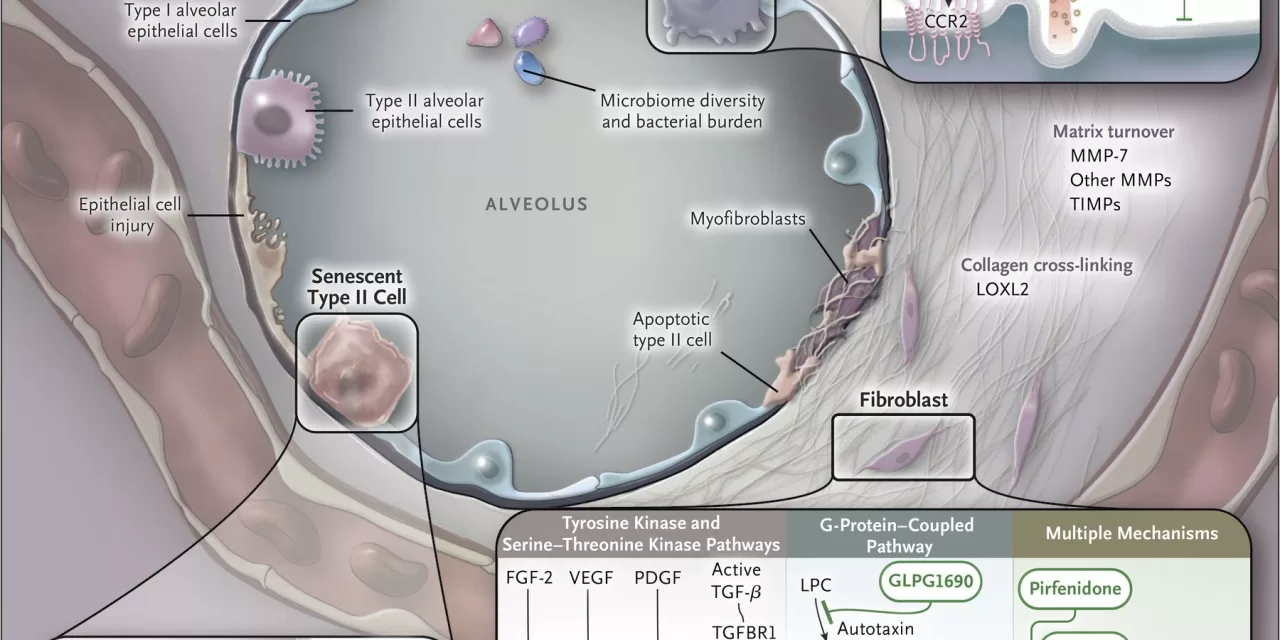Legendary musician and cultural icon Zakir Hussain, known for his unmatched mastery of the tabla and his significant contributions to Indian classical music, passed away at the age of 73. Hussain, who had been battling health issues for some time, succumbed to complications arising from idiopathic pulmonary fibrosis (IPF), a progressive lung disease that causes severe scarring of lung tissues. He was hospitalized for nearly two weeks and later moved to intensive care as his condition worsened.
Hussain’s family mourns his loss, describing him as a cultural ambassador and one of the greatest musicians of all time. They said in a statement, “His prolific work as a teacher, mentor, and educator has left an indelible mark on countless musicians. He hoped to inspire the next generation to go further. He leaves behind an unparalleled legacy as a cultural ambassador and one of the greatest musicians ever.”
What is Idiopathic Pulmonary Fibrosis (IPF)?
Idiopathic pulmonary fibrosis is a serious and progressive lung condition in which the lung tissue becomes thickened and scarred over time. This scarring makes it increasingly difficult for the lungs to function properly, leading to difficulty in breathing and reduced oxygen delivery throughout the body. The term “idiopathic” refers to the unknown cause of the disease, meaning it arises without a clear underlying factor.
Typically affecting individuals over the age of 50, IPF progresses gradually, and while there is no cure for the condition, treatments are available to manage symptoms and slow the disease’s advancement. Treatment options include medications, oxygen therapy, pulmonary rehabilitation, and, in some cases, a lung transplant.
Symptoms of Idiopathic Pulmonary Fibrosis
Recognizing the symptoms of IPF early can be crucial for managing the condition. While the symptoms vary from person to person, some common signs include:
- Shortness of Breath: This often begins during physical activity but may later interfere with daily tasks.
- Persistent Dry Cough: A non-productive, chronic cough can be one of the earliest signs.
- Fatigue: A person may feel unusually tired or experience a lack of energy.
- Unexplained Weight Loss: Losing weight without trying or a noticeable decrease in appetite.
- Chest Discomfort: Tightness or discomfort in the chest area.
- Clubbing of Fingers or Toes: Some individuals may notice a rounded or swollen appearance at the tips of their fingers or toes.
Managing Idiopathic Pulmonary Fibrosis
Although IPF cannot be cured, several treatments can help manage symptoms and improve the quality of life for patients. Common management strategies include:
- Antifibrotic Medications: Drugs like pirfenidone and nintedanib are often prescribed to reduce lung scarring and slow disease progression.
- Pulmonary Rehabilitation: Programs involving exercises and breathing techniques can improve lung function and help manage symptoms.
- Oxygen Therapy: Patients may use supplemental oxygen to ensure adequate oxygen levels in the body.
- Lung Transplant: In severe cases, when other treatments are no longer effective, a lung transplant may be considered.
As the world remembers Zakir Hussain for his extraordinary contribution to music and culture, his battle with IPF highlights the importance of raising awareness about this serious condition. Despite the lack of a cure, advancements in treatment options offer hope for those living with IPF and other respiratory diseases.












